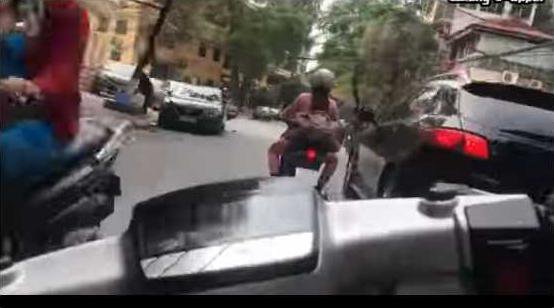It turns out checking Twitter or Facebook before bed is bad for your health.
A new study from the University of Toledo found that blue light from digital devices can transform molecules in your eyes retina into cell killers.
That process can lead to age-related macular degeneration, which is a leading cause of blindness in the United States,
according to the researchs extract.
Blue light is a common issue for many modern Americans. Blue light is emitted from screens, most notably at night, causing
sleep loss,
eye strain and
a number of other issues.
Dr. Ajith Karunarathne, assistant professor in the UT Department of Chemistry and Biochemistry, said our constant exposure to blue light cant be blocked by the lens or cornea.
"It's no secret that blue light harms our vision by damaging the eye's retina. Our experiments explain how this happens, and we hope this leads to therapies that slow macular degeneration, such as a new kind of eye drop, he said.
Macular degeneration is an incurable eye disease that often affects those in their 50s or 60s. It occurs after the death of photoreceptor cells in the retina. Those cells need retinal to sense light and help signal the brain.
The research team found blue light exposure created poisonous chemical molecules that killed photoreceptor cells
"It's toxic. If you shine blue light on retinal, the retinal kills photoreceptor cells as the signaling molecule on the membrane dissolves," said Kasun Ratnayake, a Ph.D. student researcher working in Karunarathne's cellular photo chemistry group. "Photoreceptor cells do not regenerate in the eye. When they're dead, they're dead for good."
However, the researchers found a molecule called alpha-tocopherol, which comes from Vitamin E, can help prevent cell death,
according to Futurism.
The researchers plan to review how light from TVs, cellphones and tablet screens affect the eyes as well.
"If you look at the amount of light coming out of your cellphone, it's not great but it seems tolerable," said Dr. John Payton, visiting assistant professor in the UT Department of Chemistry and Biochemistry. "Some cellphone companies are adding blue-light filters to the screens, and I think that is a good idea."
Indeed, Apple released a Night Shift mode two years ago to help quell blue lights strain on the eyes,
according to The Verge. The screen will dim into a warmer, orange light that will cause less stress on the eyes.








